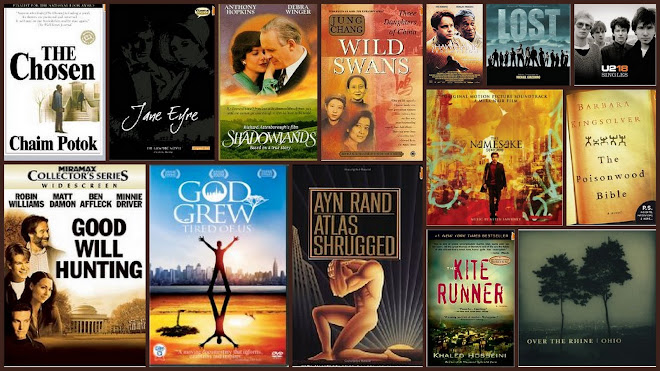I got this book (Walk Back the Cat by Pamela Ewen) via PaperbackSwap, and couldn't remember what it was about or who recommended it to me, which is really the best way to go into a book (or a movie, for that matter). No preconceptions.
After a couple of chapters I could see a polemic being set up between faith and the secular world, but it took me a while to figure out exactly which side the book was on because it just didn't have the feel of a typical Christian novel, at least not at first.
Actually, it was sort of strangely timely, because a lot of the tension in the book is surrounding whether or not faith in the supernatural makes sense (all woven into a good story), and I've been dealing with those questions a lot recently, as you can read here. It has a bit of the feel of "The DaVinci Code" without the crazy action, and in the end siding with faith instead of against it. All in all, it's a pretty good novel that I do recommend. It is reviewed well outside of the Christian community as well.
Now, stop reading here if you don't want spoilers or to engage in a discussion of theology.
Once I realized that this book was coming down on the side of faith, I was sort of puzzled by a few elements in it. First of all, one of the debates my friends and I got into in college was about apologetic methods - in other words, how people come to belief and how we guide them there. The two general sides are presuppositionalism and evidentialism. To put it briefly, evidentialism says that we argue from evidence and proof of facts lead to faith (i.e. "The Case for Christ" and "Evidence that Demands a Verdict") On the other side (where Isaac and I generally find ourselves), we say that though facts and reason for our beliefs to exist, rarely does anyone come to faith becomes of rational arguments. In the end we choose a presupposition - perhaps take a "leap of faith", regardless of what we believe. For Isaac in particular this follows his reformed theology, because he believes that no one believes until God first changes their heart.
In any case, Ewen comes down hard on the evidentialism side - she very clearly says that without proof, people lose faith. So - the novel goes on to attempt to show some proof for faith, and this is where I was really puzzled, because her proof is one I've never heard before, and so I actually thought that the novel would end up being against faith because I thought her proof was somewhat laughable. She centers the story around the Shroud of Turin, which I really knew nothing about, but it is an old relic that is said to be the burial cloth of Jesus. Ewen basically centers the book around the validity and proof of the cloth being the ACTUAL shroud of Jesus, and this then gives us confidence in the truth of our faith.
Wow... so that really surprised me. The author's note in the back says that all of the research on the shroud presented in the book is real research, which was really shocking. I've got to go do my own research now. The thing is, I really agree with what Ewen says in the book through the character of Priest Leo: the death and resurrection of Christ is the center and foundation of our faith, and without it, Christianity falls. But what I really question is 1) whether the Shroud of Turin is really viable and 2) that we actually need something like the Shroud of Turin to have the historicity of the death and resurrection of Christ be viable. I think we have... MUCH better arguments, so much so that I really see no need to see the Shroud as important. Ewen is a lawyer, so that she really thinks the Shroud is viable... I don't know. It's surprising.
Oh yeah, and the other thing that got me is that while most of the book was meant to be very realistic and a realistic story that could happen today, there's one story line from back in the time of Jesus that follows the Apostle Peter's niece during the death and resurrection of Christ. It got really weird and had the little girl fade through time and appear to a modern day character... and it is her appearance to him that ultimately is meant to prove the truth of the Shroud to him. What? It just felt so... weird. It was like, if you're going to try to PROVE the Shroud by hard evidence, it's sort of contradictory to then bring in a sort of supernatural vision to seal the deal - wouldn't these characters simply not believe in the supernatural? It felt awkward to me.
In any case, it was a very different type of Christian novel than I am used to. I think the author may be Catholic and that may explain why we think so differently about faith.
Subscribe to:
Post Comments (Atom)





Fascinating review. I think I would have been troubled by some of the same things that bothered you. The authenticity of the shroud of Turin cannot be the basis of our faith. What made Christians believe through the centuries before the shroud was discovered? And there is too great a number in the evangelical community who doubt its authenticity for me to consider it a necessary component to faith in Christ. Thanks for writing a post to make us think.
ReplyDelete